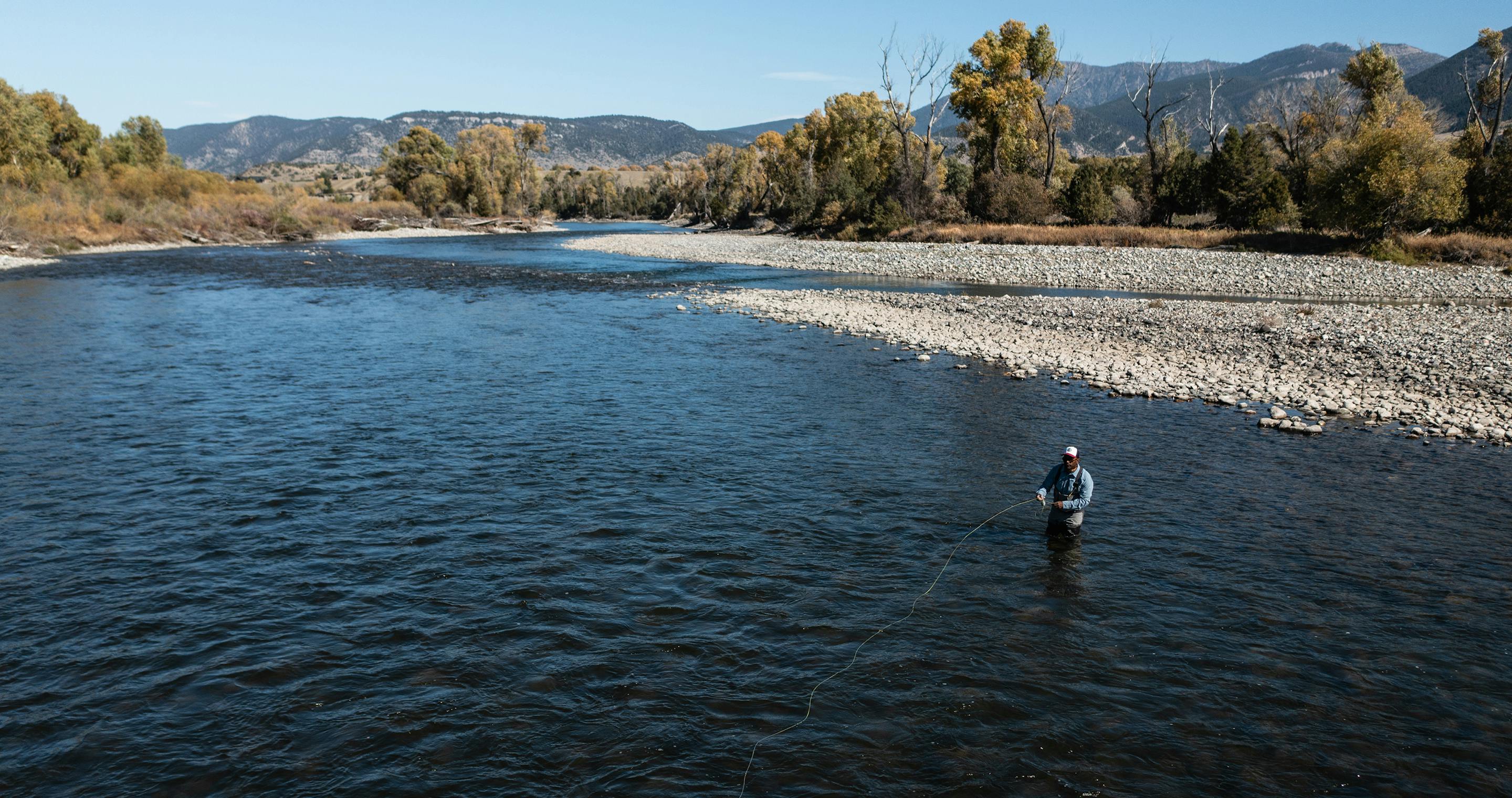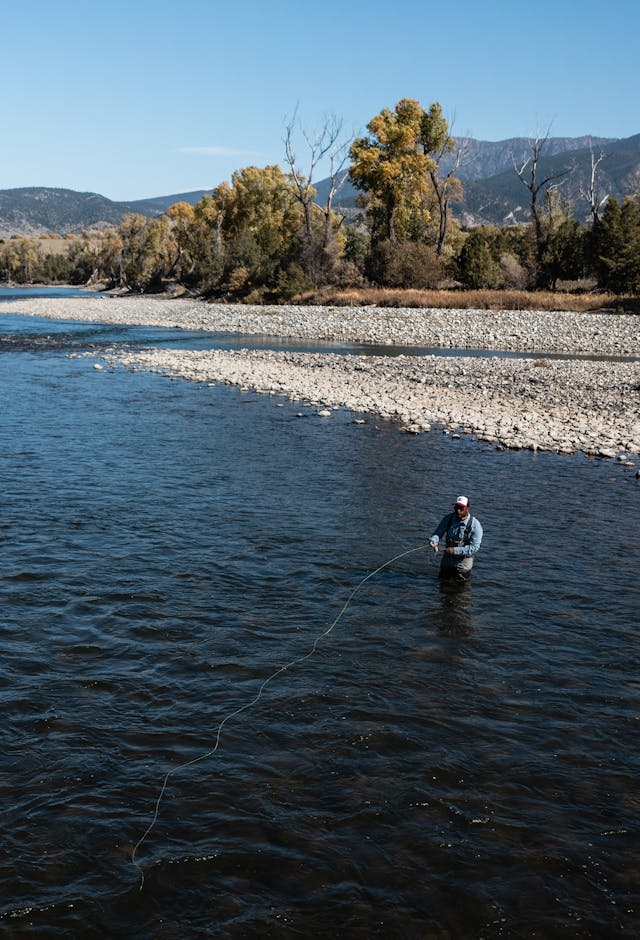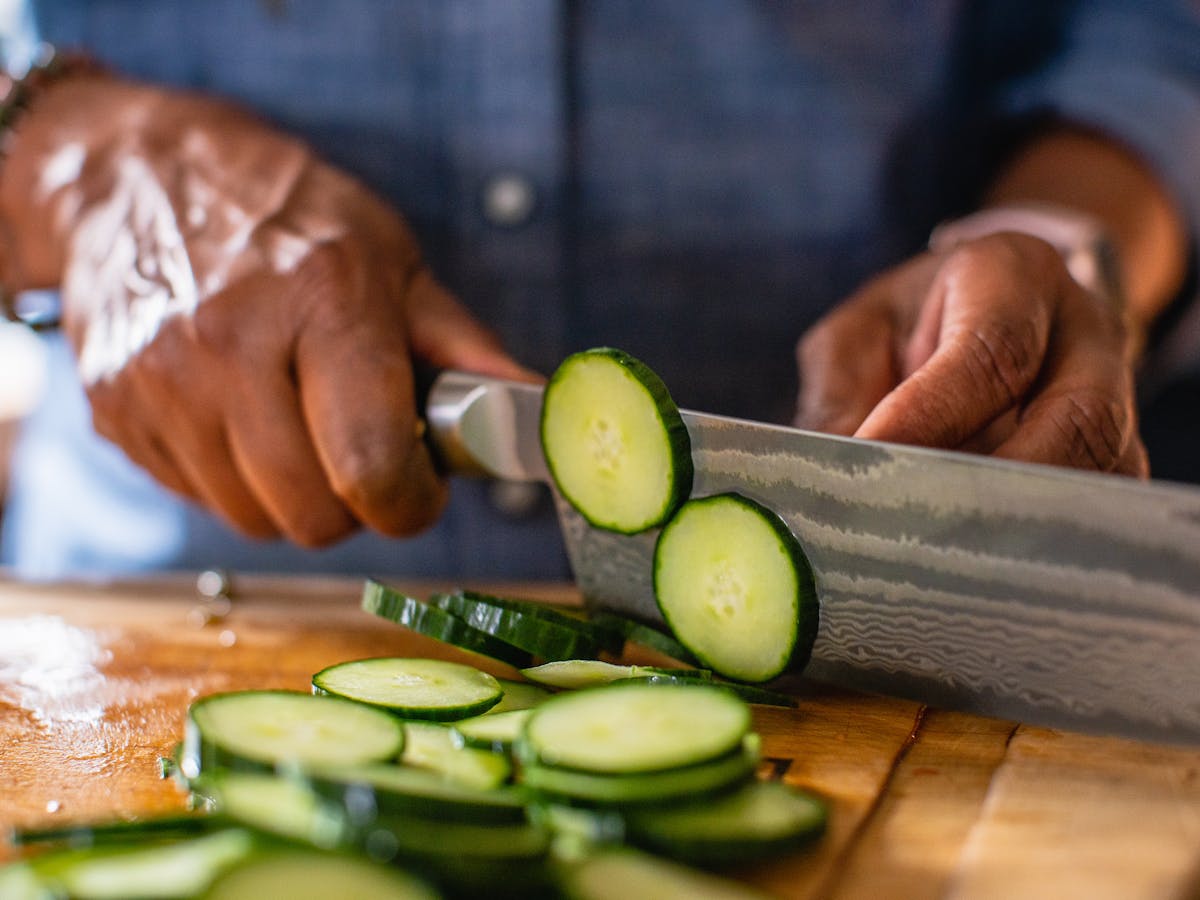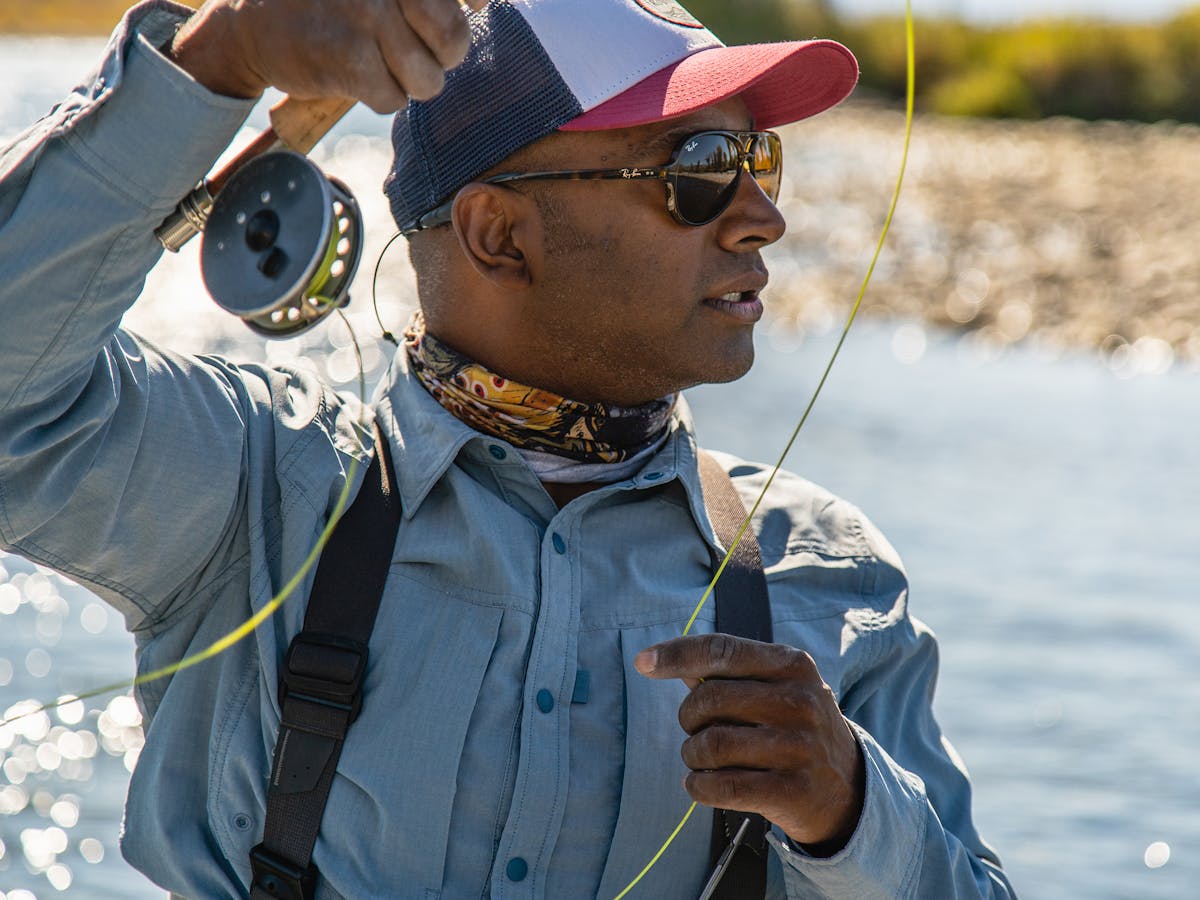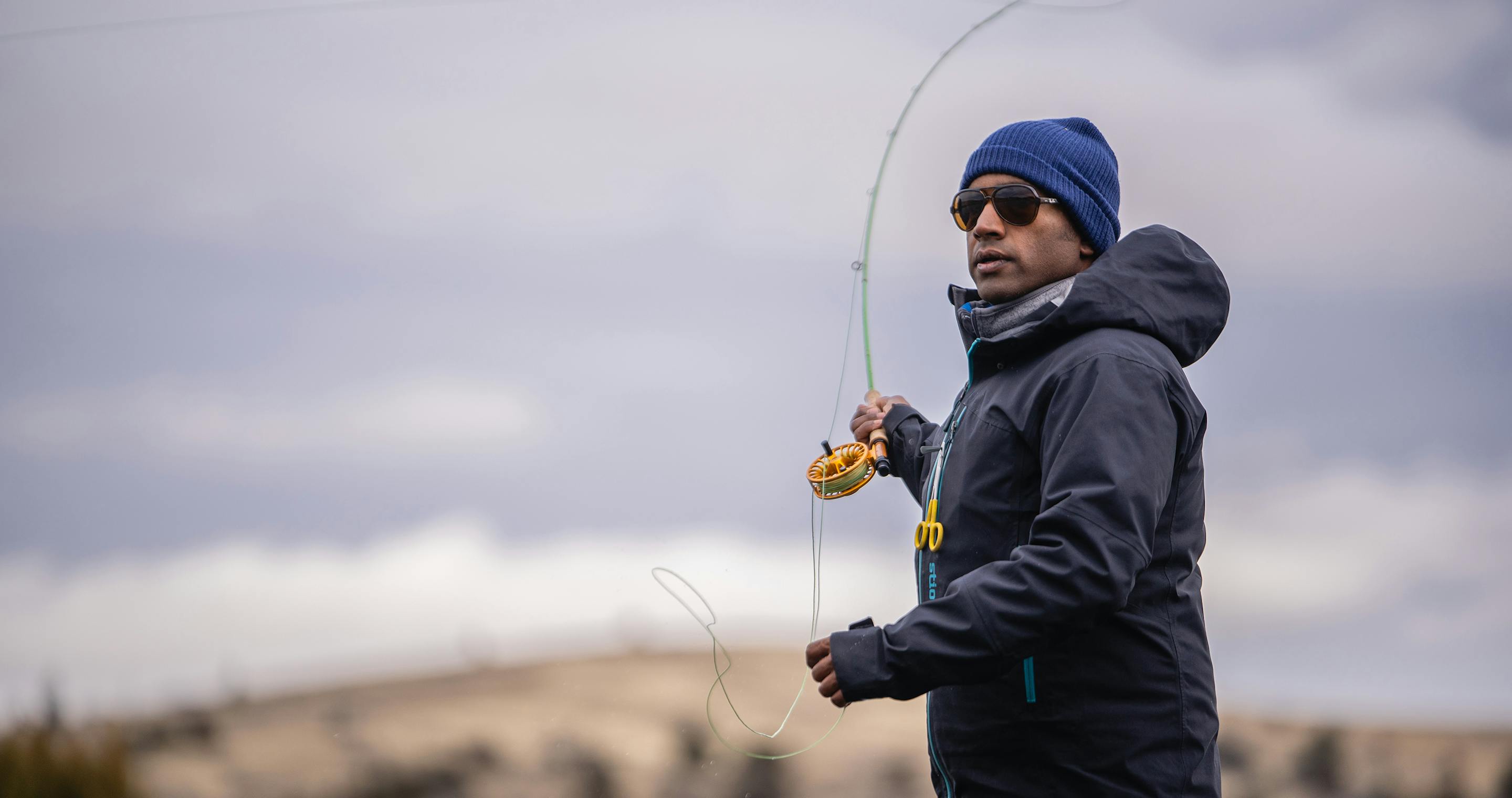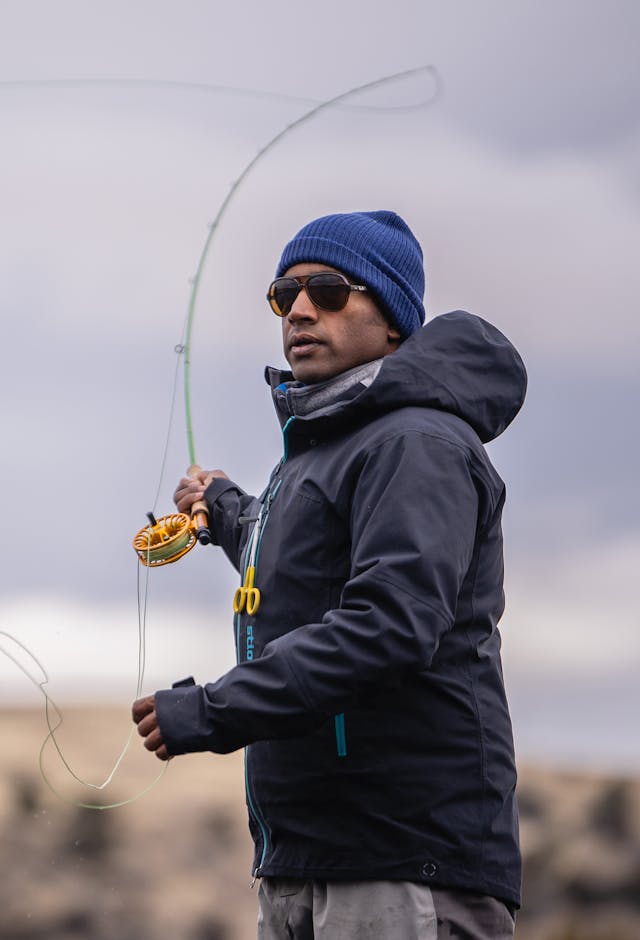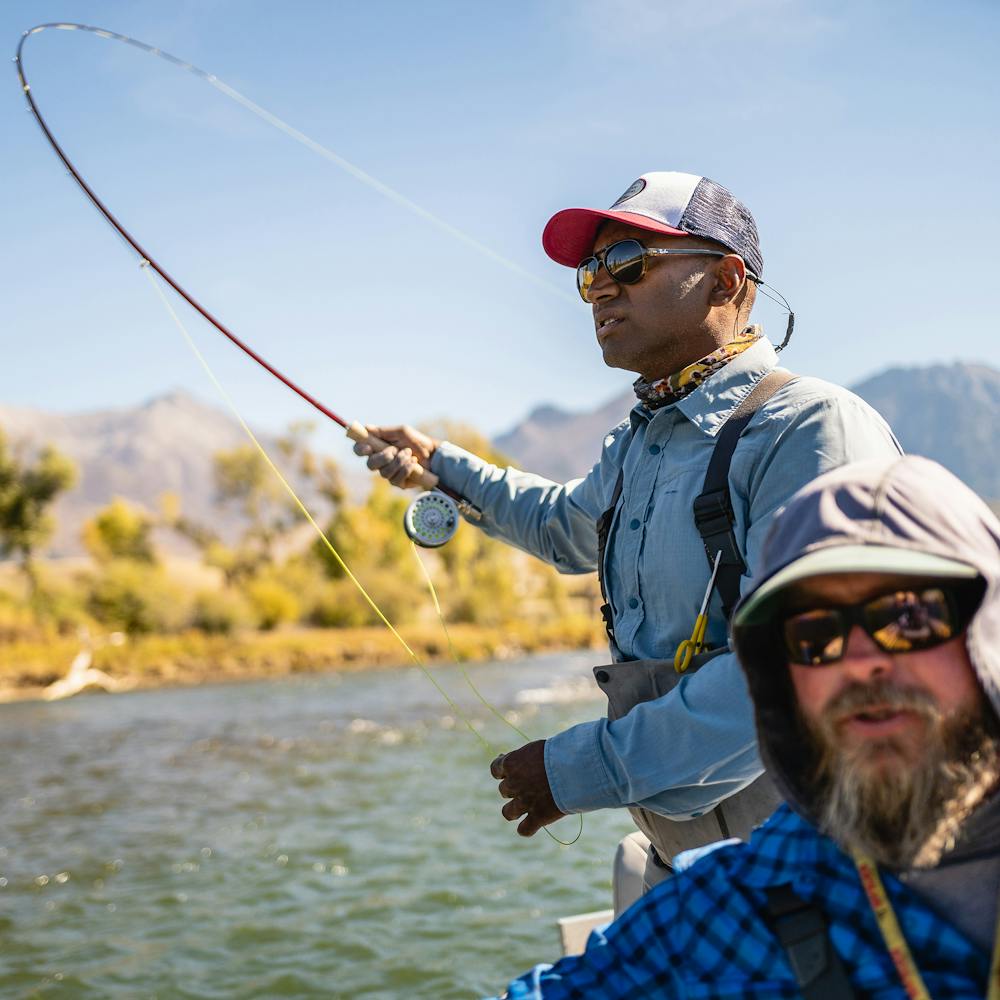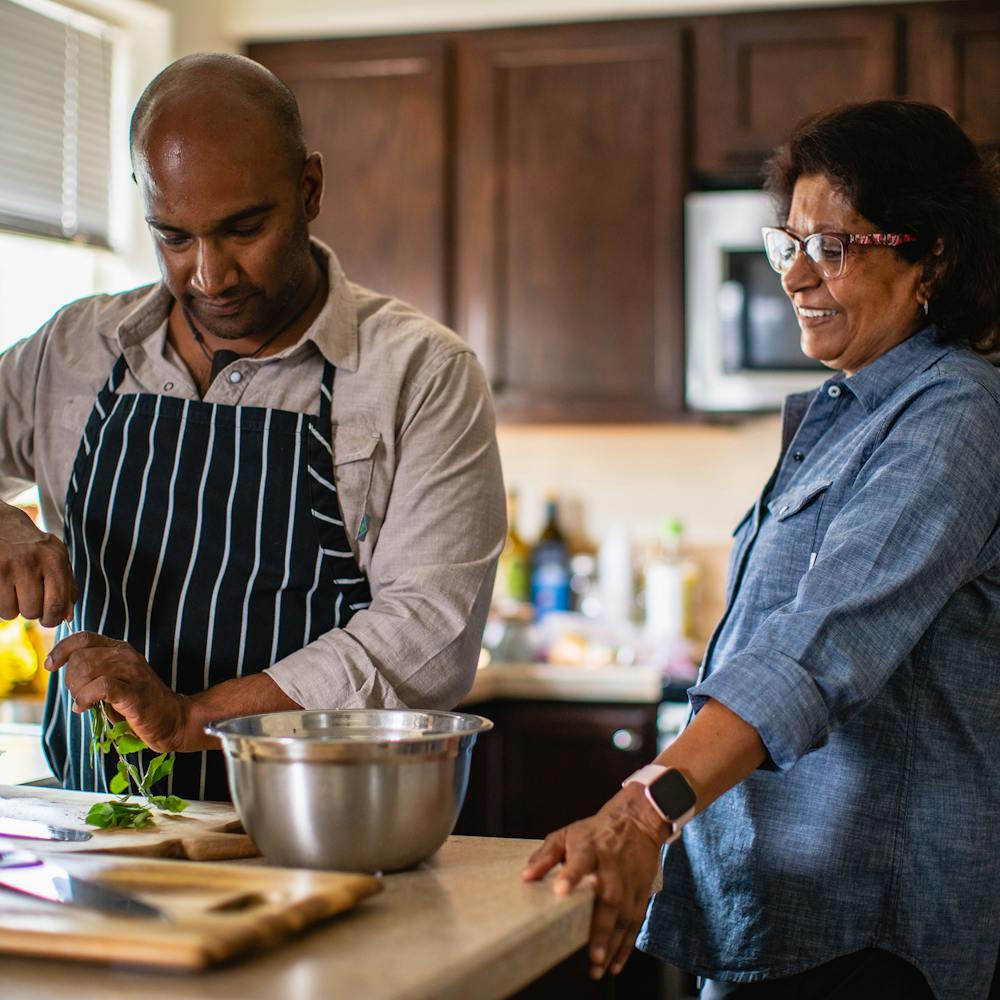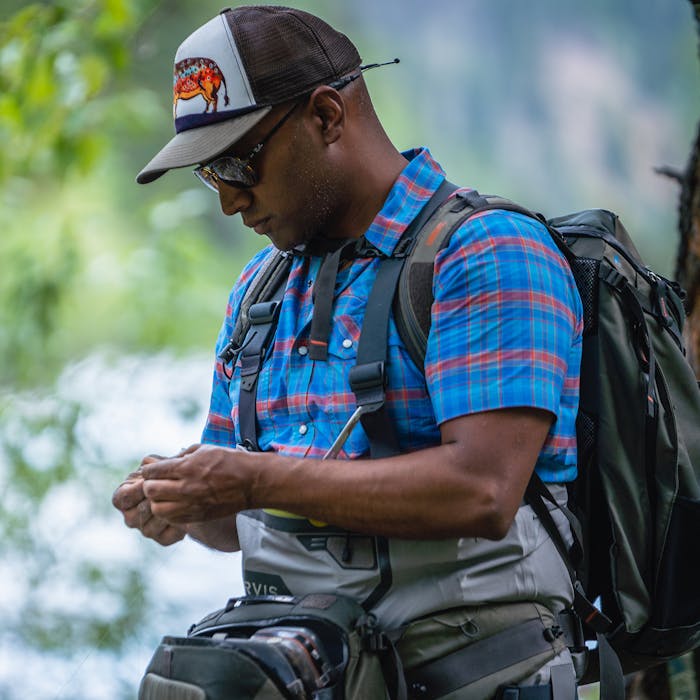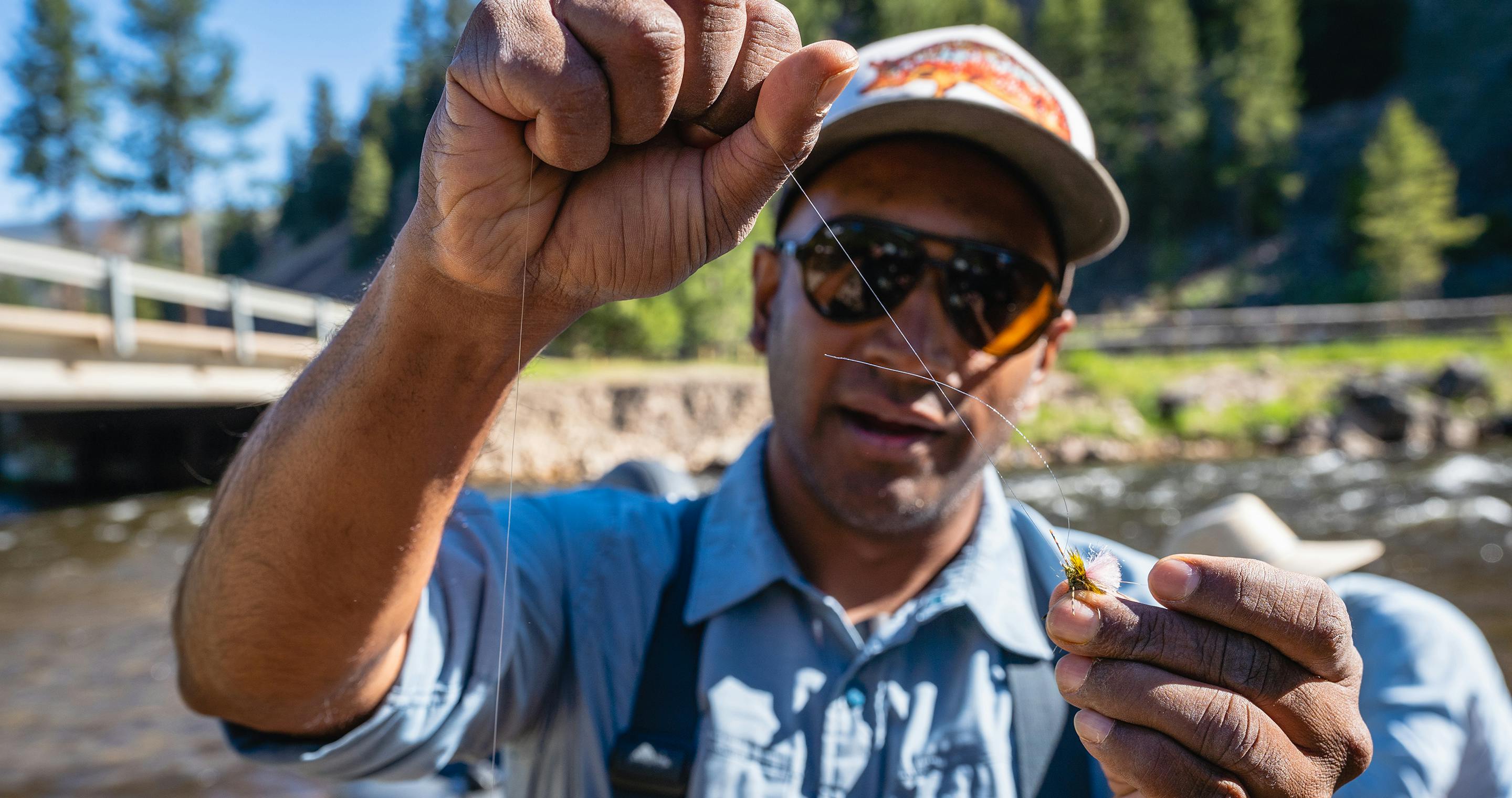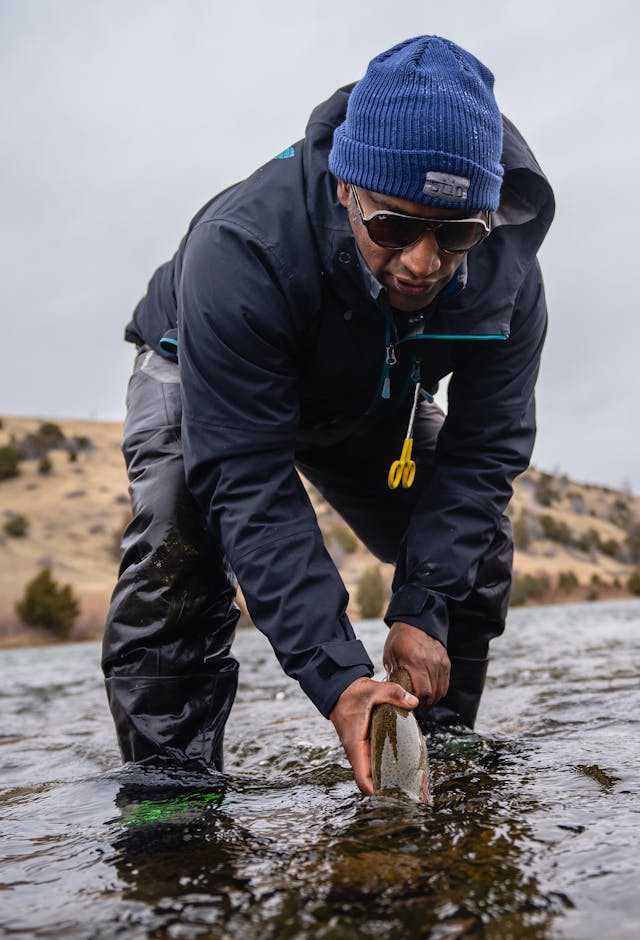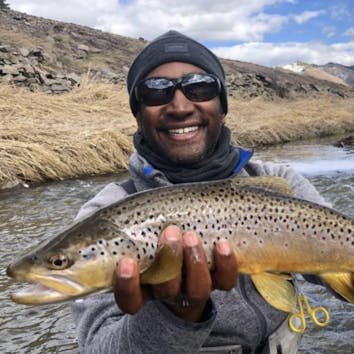Seeking Presence Through Fishing and Cooking
Photos by Tom Attwater | Words by Molly Herber | 5 Min Read
Photos by Tom Attwater
Professional chef and avid fly fisher Ranga Perera navigates his home waters with the familiarity of an old stomping ground, flicking the rod so the fly lands just in the shaded spot where the trout may be lurking. He brings easy flow to navigating tangled riverside willows and to preparing meals focused as much on the companionship as the food. But the apparent effortlessness belies the years spent honing these two passions and the challenges Ranga met that led to this day on the river.
A longtime resident of Bozeman, Montana, Ranga was born in Sri Lanka and grew up in California. While pursuing a degree in political science at UC Berkeley, he remembers being “a miserable mess.” Confronting the simultaneous challenges of figuring out what he really wanted his career to be, managing depression, and graduating from college in the midst of the 2002 tech crash, his life felt limited and stuck.
So when a family friend offered a ride to Montana for a three-day fishing trip, he said yes. They crossed the flats of Nevada and Idaho sagebrush, driving the last few hours in the dark. When the sun rose the next morning, the landscape gave him goosebumps.
“I was floored. I had never experienced anything like that. A creek was running just ten feet from our cabins and we were in the middle of huge mountains. I think I even spotted a moose that morning.” And when he picked up a first fly rod for the first time, “I just loved being wadered up and trouncing around the water. I felt like a kid again.”
When we returned to California, Ranga couldn’t shake the impression those three days made. A few months later, he quit his job, found work at a dude ranch in Montana and made the move.
The culinary skills that Ranga had begun building in Berkeley served him well in Montana as he began working at the exclusive Yellowstone Club, refining his skills in the kitchen while learning to fly fish on his off hours.
On the water, Ranga explains, he found passion that was driven by a deeper calling than the number or size of the fish he caught: “It’s about being outside and being in a place where your cell phone doesn’t work, where you can touch a tree as you walk by instead of a piece of steel or concrete. To me, it’s incredibly grounding to touch and feel and hear those things that are not in our day-to-day.”
That same attention and care for process, rather than just the outcomes, also shows up in the dishes he creates: “I’m after a feeling of being a part of something bigger. Sure, I want to deliver the most beautiful plate and the most perfect combination of flavors, but ultimately what I’m after is everyone at the table being so present to themselves because of the food, that you can be fully present to one another.”
Mentors and friends supported Ranga’s drive to learn, both on the water and in the kitchen. While his fishing friends sometimes blurred the lines between teaching and tough love—“it was like going to boot camp for a while”—it was always grounded in fun and kindness: “Besides teaching me what to do, I had the right people come to me who empowered me to go fishing, to get out and do it.”
Ranga uses the same words for his mentors in the kitchen: “I just had these stepping stones along the way of chefs who saw my potential and that I was willing to learn. And they just empowered me to keep going.”
Ranga doesn’t undervalue the encouragement of those mentors and the sense of possibility they created, that level of support wasn’t a given for him. He explains that, up until relatively recently, “The word I would use to describe others’ attitudes toward me is underestimated. Underestimated angler, underestimated chef, underestimated human, really.”
As a person of color in the culinary world and in fly fishing, where the most visible chefs, experts and influencers are white, Ranga found himself repeatedly proving his skills and ideas, whether that was standing by creative menu concepts, or turning away from more accepted career paths for chefs and choosing his own, or even startling the clerks at some Montana fly shops who assume he’s a visitor to the state, despite having lived there for 18 years.
Experiences like these, and many others, made Ranga work toward leveraging his skills and notoriety to help create the inclusive community he wants to see: “I think about how I can give permission to go outdoors, or pursue whatever their passion is, to people who may look like me but don't feel like it’s even an option, haven’t even allowed themselves to imagine the possibility.”
Building an inclusive outdoors will take participation by everyone who enjoys these spaces, and Ranga’s outlook is optimistic: “I think we're at a really special time right now. I think people are fighting the good fight, and I think we're going to win.”
Because even when the outdoors is a place to be alone, or to escape from the hectic drivers of day-to-day living, nature has a way of heightening our sense of connection more than our separateness.
As Ranga puts it, “When I look up and see an eagle, or one of the million magical things that can happen outside, those life forms or mountains make me know that I’m not alone. There's something bigger going on, and I'm a part of something grand.
Top Stories
Check out all the Top stories
Follow us @stio
See how people are living the mountain life everyday in our gear.
